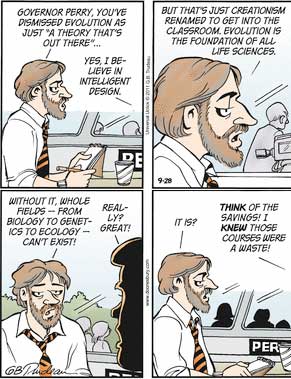Wait a minute here…this cartoon is from 1903?
And it prompted this comment?
And I have realized that C.C. Moore was reincarnated as PZ Myers.
I feel weirded out by the comparison, but I did go ahead and order the collected writings. We’ll have to see if I experience deja vu and start having flashbacks or mysterious dreams of my past life.
Mainly, right now I want my own Whip of Ridicule and Sword of Cold Facts. I think I’ll pass on the funny hat with the candle.
(via Camels With Hammers)



